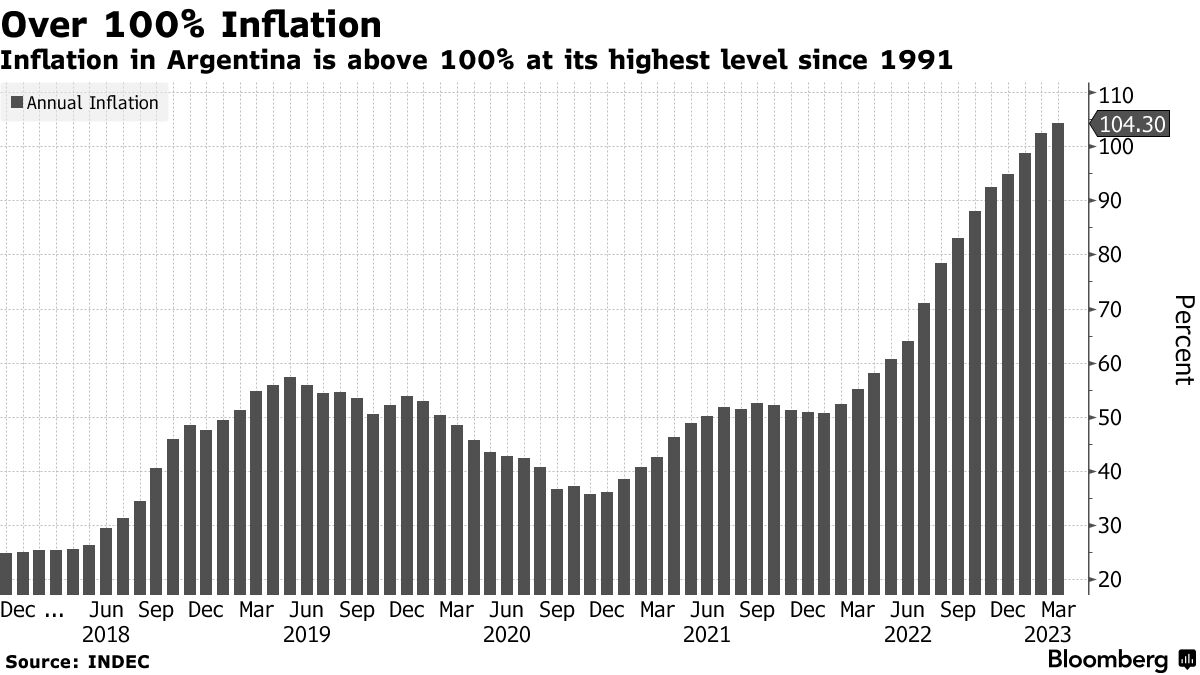Argentina’s New President Is Pro-Bitcoin, and What it Could Mean
Javier Milei wins runoff election to become Argentina’s new president. Although his beliefs line up quite clearly with Bitcoin’s, will he go the distance in supporting it?
After a contentious race, Javier Milei has won Argentina’s presidential election, and his vocal pro-Bitcoin stances have left the world wondering how far the world’s first decentralized currency will benefit.
Argentina’s election cycle this year has been particularly contentious. When the first round of elections took place this October, there were five candidates in the running; four of these earned more than 1 million votes in a total vote tally of under 30 million. In other words, it was no surprise that the two leading candidates would have to go to a runoff to determine the ultimate winner. What has upset everyone’s expectations, however, has been the self-proclaimed libertarian Javier Milei, who has publicly avowed his support for Bitcoin. Running on the LLA party’s ticket, a party he co-founded, his polling popularity went from a complete dark horse as polling began to a front runner by round 1.
Although he came in a close second on the first round, the results are in from the runoff on November 19: Milei is certainly the winner. His lead was more than 10% over his opponent, and overall he had the highest margin in 40 years of Argentine presidential elections. With results this clear, opponent Sergio Massa conceded defeat immediately. Milei’s outsider campaign has raised a lot of eyebrows worldwide, with many wondering how his economic views will correspond to social issues and foreign policy, yet one reaction stands out: Bitcoin loves it.
Bitcoin’s valuation has continued its ongoing rally with his election, jumping 3% in its wake, and leaving a lot of questions as to the possibilities. Although he has made no specific campaign promises on the promotion or adoption of Bitcoin, many can point to an interview where Milei claimed that “We have to understand that the central bank is a scam” and “What Bitcoin represents is the return of money to its original creator, the private sector.” In other words, he may not specifically have an ongoing commitment to decentralized currency, but he shares many of the most fundamental beliefs with those who created it and form its community. After all, Bitcoin’s own genesis block contains a message with a similar disdain for big banks.
Milei’s own love for Bitcoin may be something of a wild card, but already there are efforts to convince him that libertarianism and Bitcoin are intimately tied together. For example, El Salvador’s President Nayib Bukele has already formed a team to make a formal diplomatic mission, intent on convincing Milei of Bitcoin’s potential for economic freedom. The mission will even include a formal invitation for Milei: Come visit our experiment, “dine at the Presidential Palace here in El Salvador and talk about Bitcoin”, president to president. Community luminaries like BitMEX’s Arthur Hayes and MicroStrategy’s Michael Saylor congratulated Milei’s win, but this international diplomacy is a step above these individual salutes.
Still, even though this result seems very promising for Bitcoin, there are reasons to suggest that Milei’s free market attitudes will not directly correspond to Bitcoin itself. For one thing, let’s take a closer look at Bukele, who made history with his move to make Bitcoin a legal tender in El Salvador. This move took place for a variety of reasons, but one particular standout is the dollarization in that country. Previous administrations had scuttled El Salvador’s own currency and replaced it with the dollar, and Bukele sought Bitcoin as a way to remove this economic leverage. Argentina, on the other hand, still has its own currency, but the Argentine peso has been rocked by instability and hyperinflation.
Milei has proposed radical solutions to try and remedy this crisis, in accordance with his own economic beliefs: Not only does he want to shutter Argentina’s central bank, but he wants to remove the Argentine peso along with it. However, his plan has not been to replace it with Bitcoin, but with dollarization, the very sort of economic imbalance that Bukele used Bitcoin to fight. A move this radical will surely take a long fight against a great many government and financial institutions, as it’d be the largest currency to ever become dollarized in this way. If Milei starts that fight, how much willpower will be left over for Bitcoin policies? If he wins it, will it chill relations with his pro-Bitcoin ally?
This is the biggest issue with pinning huge hopes for Bitcoin on one man. He’s been adamant about running an outsider campaign, founded his own political party and won his first national election two years ago. Any of his stances from a distrust of big banks to a belief in economic independence plant him squarely in the same ecosystem that created Bitcoin. But how deep will his allegiances run? A few pro-Bitcoin comments are certainly very encouraging, but how can we truly convince him that Bitcoin is in his own rational self-interest? He’s such an outsider, that we don’t have a yearslong track record to examine or specific levers to pull.
It seems that Bukele already has the right idea, by immediately planning a diplomatic mission to convince him about Bitcoin. Indeed, the whole community has the right idea, by reacting with the sort of enthusiasm that creates real economic value. Bitcoin has been a rising star for years now, and as the saying goes, victory has a hundred fathers. If Milei already has a general belief that Bitcoin is good, and shares the same general economic principles as many Bitcoiners, how hard will it really be to convince him of its durable prosperity? He’s already won a lot of friends, and it’s up to him to show how friendly he wants to be in return. With Bitcoin’s valuation rallying and continuing to stay strong, it seems easy to see that we can give Javier Milei a lot of reasons to stick around.








